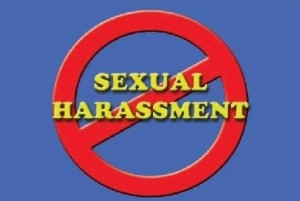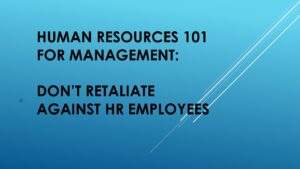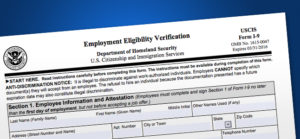 The Fifth Circuit reversed a jury verdict last month in a same-sex harassment case that will certainly raise some eyebrows. In EEOC v. Boh Brothers Construction Co., the EEOC brought suit on behalf of Kerry Woods, a male construction worker. Woods was subjected to sexual harassing conduct by a crew superintendent, Charles Wolfe. Wolfe would call Woods a “faggot” and “princess”, come up from behind Woods and simulate sex while Woods was bent over, and even exposed himself to Woods on several occasions. After Woods complained of the harassment, he was reassigned to a different location and subsequently laid off. At trial, the jury found in the plaintiff’s favor on both the sexual harassment and retaliation claims.
The Fifth Circuit reversed a jury verdict last month in a same-sex harassment case that will certainly raise some eyebrows. In EEOC v. Boh Brothers Construction Co., the EEOC brought suit on behalf of Kerry Woods, a male construction worker. Woods was subjected to sexual harassing conduct by a crew superintendent, Charles Wolfe. Wolfe would call Woods a “faggot” and “princess”, come up from behind Woods and simulate sex while Woods was bent over, and even exposed himself to Woods on several occasions. After Woods complained of the harassment, he was reassigned to a different location and subsequently laid off. At trial, the jury found in the plaintiff’s favor on both the sexual harassment and retaliation claims.
Same-sex harassment was first recognized by the U.S. Supreme Court in Oncale v. Sundowner Offshore Services. While there is no reference to the sexual orientation of the harasser in Oncale, the opinion sets forth some possible scenarios for an actionable same-sex claim, such as when the harasser is homosexual, or the harassment occurred due to workplace hostilities towards a particular gender. Neither of those scenarios applied to the Boh Brothers case. Wolfe was not homosexual, and the workplace was all male. It is unclear from Oncale what weight, if any, the sexual orientation of the harasser and/or the victim should have in a same-sex case. Is a same-sex harassment claim actionable under Title VII if the harasser is heterosexual? What if the victim is homosexual? What if both the harasser and victim are homosexual, or if both are heterosexual?
On appeal, the EEOC attempted to assert, ala Price Waterhouse v. Hopkins, that Woods was subjected to “sex stereotyping”, which constituted sexual harassment. The Court, however, rejected that argument, noting there was no evidence that the heterosexual Woods displayed effeminate characteristics. Unable to determine that Wolfe’s conduct constituted “sex discrimination”, it was unnecessary for the Court to decide whether the harassing conduct created a hostile work environment (which one must assume the Court would have found).
The conduct experienced by Woods in the workplace was not only degrading and humiliating, it was overtly sexual in nature, and the type of conduct that should be prohibited by Title VII — regardless of the sexual orientation of the participants. It will be interesting to see if the EEOC appeals this case, and whether the U.S. Supreme Court grants cert and provides lower courts greater guidance in the handling of these same-sex harassment cases.
“Because of the many facets of human motivation, it would be unwise to presume as a matter of law that human beings of one definable group will not discriminate against other members of that group.”
Oncale opinion quoting Castaneda v. Partida, 430 U.S. 482, 499 (1977).





